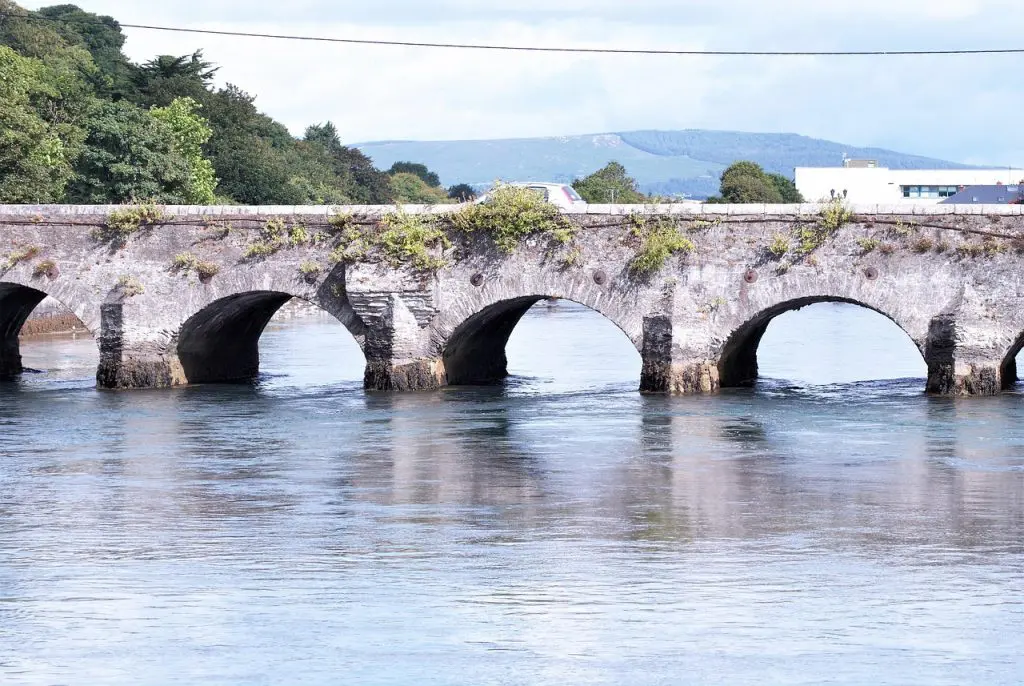
Rethinking What a ‘Clean’ River Looks Like: Westport’s Testing the Waters Project In Westport, Ireland, a new initiative is challenging traditional ideas about what it means for a river to be “clean.” The Testing the Waters Project (TWP) is a year-long, community-led collaboration designed to raise awareness about water quality in the Carrowbeg River. The […]
In Westport, Ireland, a new initiative is challenging traditional ideas about what it means for a river to be “clean.” The Testing the Waters Project (TWP) is a year-long, community-led collaboration designed to raise awareness about water quality in the Carrowbeg River. The project brings together art, science, social science, and community engagement to address the environmental challenges of climate change, biodiversity loss, and water health.
The initiative is led by the Co-Centre for Climate + Biodiversity + Water, in collaboration with Westport Tidy Towns and the Local Authority Waters Programme (LAWPRO). Funded by Research Ireland, TWP was launched with the goal of sparking meaningful dialogue around what river health really means. Not just in appearance, but in ecological terms.
At the centre of the project is Flotilla 2025, an art installation composed of bamboo rafts carrying sculptures inspired by native plants and species. These species are known indicators of good water quality. The installation was officially unveiled on 16th of August during Heritage Week. This installation came alongside the launch of a citizen science programme allowing residents to take an active role in monitoring the river.
A key message of the project is that visual cleanliness doesn’t always equate to ecological health. To many people, a “clean” river is one with clear water and no visible algae or plant life. But to scientists and environmental experts, a thriving river often appears less pristine, with visible vegetation and diverse aquatic life that signal a healthy ecosystem.
As Eithne Larkin, Chairperson of Westport Tidy Towns, explained:
“We thought a good river was meant to be absolutely swept clean and racked clean. Our thinking has evolved and our challenge now is to move forward. The move toward sustainability where we live, and all of the work we do, is to get that balance with good practice from an ecological point of view, from an environmental point of view, and still maintain the tidiness.”
Indeed, this tension between public perception and ecological reality is a central theme of the project. Westport, known for its neat and manicured appearance, is now re-evaluating its approach to environmental care. Especially when it comes to natural waterways.
The Testing the Waters Project places the community at its core, involving local residents not just as observers, but as active participants. Through its citizen science programme and public art, the project invites everyone to rethink their relationship with the river.
Anne Kearns, Education, Public Engagement and Policy Manager with the Co-Centre, emphasised the importance of these conversations, and that to some people:
“Clean means there is no plant life, no debris, there is nothing in it. Westport Tidy Towns have come around to the idea that actually ‘clean’ means a good river with healthy river quality. That doesn’t always look ‘clean’, usually it looks pretty nice, but it doesn’t look ‘clean clean’, that’s where the debate lies.”
The project draws on social science to better understand how communities perceive their environment and how best to communicate the importance of biodiversity and ecological integrity. As Luke Drea, Senior Community Water Officer with LAWPRO, noted, public engagement is a legal requirement under the EU Water Framework Directive, and critical to effective water management.
Crucially, the lessons from Westport are already informing similar efforts in nearby towns such as Louisburgh. Researchers like Elizabeth Salter are studying how different forms of community engagement, from art installations to conversations, can catalyse environmental action.
“Conversations are not just sitting around and chatting,” said Salter. “They are open spaces.”
The project’s success lies in its unique blend of art, science, and local participation. It shows how shifting mindsets, especially about what a river should look like, is just as important as implementing environmental protections.
Overall, Westport’s Testing the Waters Project offers a powerful example of how environmental change is rooted in community engagement, expert guidance, and interdisciplinary collaboration. By reframing the idea of a “clean” river and encouraging dialogue over appearance vs. ecological health, the town is taking real steps toward a more sustainable and informed future.
As other communities look for ways to protect their own natural resources, Westport’s experience stands out as a compelling and replicable model. One that proves lasting change begins with conversation, creativity, and collective effort.
At All-Ireland Sustainability, we’re committed to building a greener, fairer island, together. Stay informed on the latest environmental initiatives, community action, and policy developments shaping sustainability across Ireland, North and South.
👉 Sign up for our newsletter today and be the first to hear about upcoming events, expert insights, and ways to get involved.
Whether you’re a seasoned advocate or just starting your journey, new members are always welcome.
Subscribe now and be part of the All-Ireland Sustainability network.